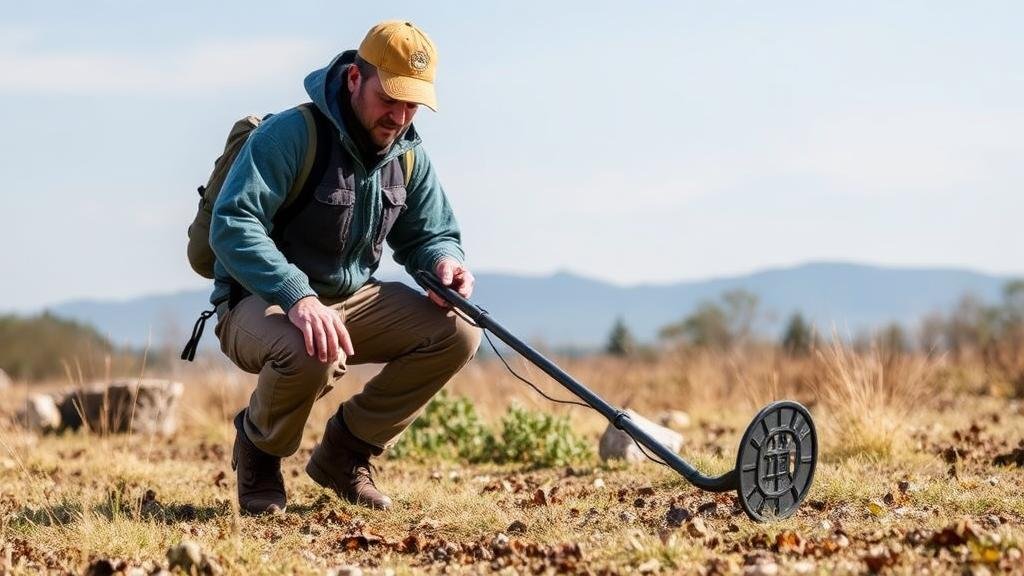Metal Detecting for Beginners: Tips to Start Your Treasure Hunting Journey
Metal Detecting for Beginners: Tips to Start Your Treasure Hunting Journey
Metal detecting is an exciting hobby that combines exploration, adventure, and the thrill of possibly discovering valuable items hidden just beneath the surface. For beginners, diving into this world can be both exhilarating and overwhelming. This guide aims to equip newcomers with essential tips, industry insights, and practical steps to embark on their treasure hunting journey.
Understanding Metal Detectors
At the heart of metal detecting is the metal detector itself–a device designed to detect metallic objects underground. e are various types of metal detectors, each serving different purposes:
- VLF Detectors: Very Low Frequency (VLF) detectors are the most common for hobbyists and are known for their sensitivity to small metal objects. Ideal for beginners, they provide audio signals in response to detected metals.
- Pulse Induction (PI) Detectors: These are generally used in saltwater environments and can penetrate deeper into the ground. They are less common among beginners due to their complexity and higher cost.
- Multi-Frequency Detectors: These detectors combine the advantages of both VLF and PI technology. can be used in various environments and are becoming increasingly popular.
When choosing a detector, consider your primary interest–whether its coins, jewelry, or relic hunting–and the environment in which youll be searching.
Essential Gear and Accessories
To maximize your metal detecting experience, consider investing in some essential gear and accessories:
- Headphones: Quality headphones can reduce environmental noise, allowing you to better hear faint signals from your metal detector.
- Digging Tools: A sturdy trowel or a specialized digging tool helps excavate soil without damaging potential finds.
- Pinpointer: This handheld device helps locate small objects once they have been unearthed, saving time and effort.
Being well-equipped not only enhances your efficiency but also ensures that you protect the integrity of the finds you encounter.
Selecting the Right Locations
Location is crucial in the metal detecting hobby. Different sites yield various potential treasures. Here are some prime spots to consider:
- Parks and Recreational Areas: These locations often attract picnics and gatherings where people may lose coins and jewelry.
- Beaches: Sand and water often wash away debris, exposing treasures that wash ashore.
- Historic Sites: Areas with rich history may contain relics; however, ensure that you have permission to search here, as many historic sites are protected by laws.
Researching local areas through maps, history books, and online forums increases your chances of uncovering significant treasures.
Learning the Basics of Ground Detection
Understanding how your metal detector interacts with the ground is essential. Soil composition can affect detection depth and effectiveness. Here are key points to consider:
- Mineralization: Highly mineralized soils can produce “false signals.†Familiarize yourself with the responsiveness of your detector in different soil conditions.
- Searching Techniques: Employ a systematic approach, such as overlapping sweeps, to thoroughly cover the area and ensure that you do not miss targets.
Experimenting with different settings and techniques will help you become more adept over time.
Understanding Legal Considerations
Before embarking on your treasure hunting adventures, it is vital to understand local laws concerning metal detecting. Some important regulations include:
- Permissions: Always obtain permission from landowners before detecting on private property.
- Protected Sites: Many locations, such as battlefields and archaeological sites, have strict laws prohibiting treasure hunting.
- Reporting Finds: In some jurisdictions, valuable artifacts or historical coins must be reported to authorities.
Staying informed about legal guidelines helps protect you and preserve historical sites.
Building Community and Resources
Joining metal detecting clubs and online forums can provide invaluable support and resources. Engaging with fellow enthusiasts offers the following advantages:
- Knowledge Sharing: Learning from seasoned metal detectors can enhance your skills faster than trial and error alone.
- Event Participation: Clubs often organize hunts where you can find items in group settings, fostering camaraderie and learning.
Community involvement can provide motivation and inspiration in your treasure hunting journey.
Actionable Takeaways
As you embark on your metal detecting journey, consider incorporating these actionable takeaways:
- Invest in a decent metal detector suitable for beginners and complement it with necessary accessories.
- Choose diverse locations to maximize your chances of finding treasures, and always respect local laws and regulations.
- Engage with the metal detecting community for support, knowledge, and motivation.
With patience, practice, and persistence, metal detecting can evolve into a rewarding hobby that allows you to uncover the secrets held by the earth. Happy hunting!



